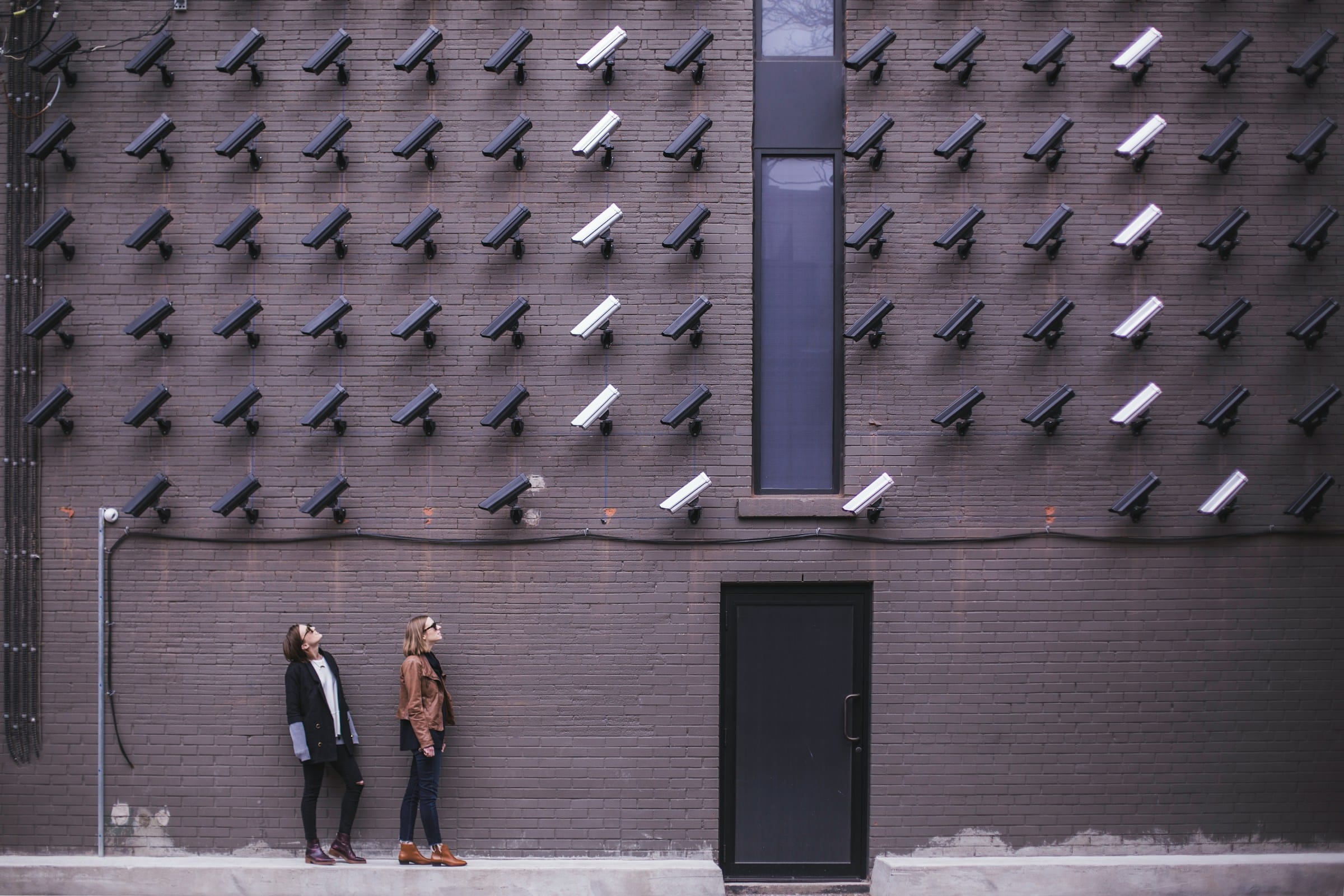What Are the Ethical Implications of Using AI for Surveillance in UK Public Areas?

As you traverse the streets of the UK, technology may be watching your every move. Artificial Intelligence (AI) is becoming increasingly prevalent in surveillance systems across the country, capturing and processing vast quantities of data. Not only does AI revolutionize the way public spaces are monitored but also raises critical ethical questions about privacy, security, and decision-making. This article delves into the implications and considerations surrounding the use of AI for surveillance in public areas in the UK.
Balancing Public Security and Personal Privacy
Many of you may appreciate the enhanced security AI surveillance systems promise. However, it is crucial to understand how this technology impacts personal privacy. With AI's capacity for facial recognition and behaviour analysis, anonymous public spaces are fast becoming a thing of the past. These developments pose a significant challenge for privacy advocates and policy makers, who must strike a balance between preserving public security and respecting individual privacy rights.
A voir aussi : How Can UK Retailers Use Machine Learning to Improve Customer Segmentation?
The technology's capacity to collect and process data at a scale unprecedented in human history necessitates robust checks and balances. Privacy laws, such as the UK’s Data Protection Act and the General Data Protection Regulation (GDPR), dictate how personal data should be collected, stored, and used. But with AI's ability to generate detailed individual profiles from mere street images, is it going too far?
Surveillance Technologies and Ethical Decision-Making
AI surveillance technologies are not merely tools; they are also decision-makers. Algorithms determine what constitutes "suspicious" behaviour and who warrants further scrutiny. But what rules are these decisions based on, and who decides these rules? There are concerns that biases embedded in the data used to train these systems could lead to unfair targeting or discrimination.
Lire également : What Are the Challenges and Opportunities of 3D Printing in UK Healthcare?
As these AI systems become more autonomous, the question of accountability also arises. If a mistake is made or misuse occurs, who is held accountable? Is it the creators of the AI, the operators, or the data used to train it? These questions highlight the urgent need for transparent and accountable AI systems.
Infectious Health Surveillance and Public Trust
The role of AI surveillance in managing infectious health crises is another area of contention. During the COVID-19 pandemic, AI was employed to monitor public areas for social distancing measures and mask-wearing compliance. While this can help control the spread of infectious diseases, it also raises questions about public trust.
If you are aware that your behaviour is being monitored for health compliance, it is likely to affect your level of trust in health authorities. Deeper issues about consent and the right to opt-out from such systems come into play. There is a risk that the perceived benefits of health surveillance could lead to encroachments on civil liberties that would not otherwise be acceptable.
The Human Crossref: Drawing the Line
When does technology cross over into territories that should remain human? Is it ethical to use AI to predict criminal behaviour or mental health issues based on public surveillance data? While technology can aid human decision-making, it should not replace the human element entirely.
This human "crossref", or reference point, helps ensure that decisions made by AI surveillance systems remain attached to human values and discretion. It's essential to remember that while AI has the potential to greatly enhance public security, it must be used responsibly to prevent the creation of an oppressive surveillance state.
Towards Ethical AI Surveillance Systems
To ensure that the use of AI for surveillance upholds ethical standards, a collaborative effort is needed. Tech companies, governments, privacy advocates, and the public must work together to establish robust guidelines and regulations. Transparency in how AI surveillance technologies are used, decisions are made, and data is handled is vital.
Furthermore, the public should be educated about how these technologies work and the implications they have for personal privacy and civil liberties. This will empower individuals to make informed decisions about their data and ensure they have a voice in debates about the use of AI surveillance.
Although the ethical implications of using AI for surveillance in UK public areas are complex, they offer an opportunity to shape a future where technology serves the public good while respecting individual rights. By engaging in these discussions and actively seeking solutions, we can navigate the challenges AI brings and harness its potential responsibly.
AI and Law Enforcement: Navigating the Ethical Minefield
As we examine the intersection of AI surveillance and law enforcement, we tread on an ethical minefield. While AI offers potential advancements in solving and preventing crimes, these advancements come at the direct expense of personal privacy. Law enforcement agencies are increasingly utilising AI tools such as facial recognition and behavioural analysis to combat crime, making public areas a hotbed of data collection.
However, it is crucial to scrutinise the ethics of this trend. Artificial intelligence, when employed in public sector surveillance, holds the potential to infringe on individual privacy. Take facial recognition, for instance. While this technology can be instrumental in identifying criminals, it also subjects every face it captures to unwarranted scrutiny. This broad-brush approach to law enforcement directly contradicts the principles of the UK's Data Protection Act and the GDPR, which emphasise the necessity of proportionality and necessity in data collection.
Moreover, machine learning algorithms used for pattern recognition and behaviour prediction can be skewed by biases present in the training data. This could potentially lead to wrongful arrests or racial profiling, raising serious ethical issues. Furthermore, the real-time data gathered by these surveillance systems can be misused, leading to unprecedented invasions of privacy.
The question, therefore, remains: How can we ensure that AI augments law enforcement efforts without eroding civil liberties? A possible solution lies in the establishment of strict regulations that govern the use of AI in public surveillance, coupled with an emphasis on transparency and accountability.
Towards a Future of Ethical AI Surveillance in Public Health
Artificial intelligence, with its capabilities in big data analysis and real-time decision making, has significant potential in public health, particularly in infectious disease surveillance. It can help identify patterns in disease spread, predict future outbreaks, and aid in contact tracing. In the recent COVID-19 pandemic, AI was employed to monitor public compliance with mask-wearing and social distancing measures.
However, the use of AI in disease surveillance raises several ethical concerns. Firstly, the collection and use of health-related data in public areas infringes on an individual's right to privacy. Secondly, the lack of regulations around the consent and opt-out options for this type of surveillance can lead to a breach of trust between health authorities and the public.
To navigate these ethical issues, transparency is key. Public health authorities need to be clear about the data collected, its intended use, how it is stored, and finally, how individuals can opt-out. Equally important is public education. The more people understand about the role of AI in public health surveillance, the more likely they are to trust it. Moreover, frameworks need to be put in place that ensure that the data collected for disease surveillance is used solely for this purpose and not repurposed for commercial gain or other non-health-related uses.
In conclusion, the ethical implications of AI surveillance in UK public areas are both profound and complex. They require careful consideration and a balanced approach that respects individual privacy rights while leveraging the capabilities of AI for public good. As we move towards a future of increased AI surveillance, it is crucial to foster dialogue and cooperation among tech companies, governments, privacy advocates, and the public to ensure that AI serves the public good without encroaching on individual liberties. By doing so, we can harness the power of AI responsibly, creating a safer, healthier, and more secure society.
